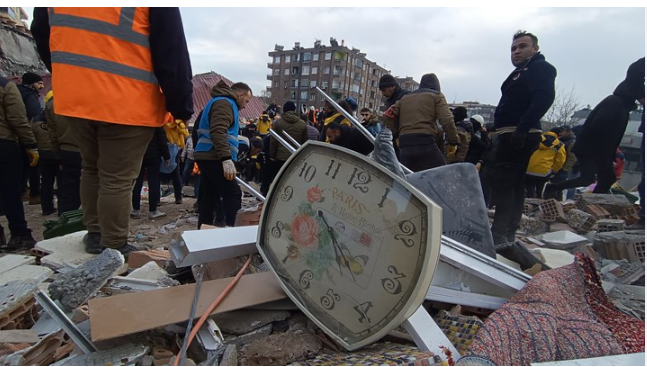Türkiye’s Erdogan faces challenge of rebuilding quake-hit zones after re-election
 deprem1
deprem1
After his re-election as Turkish president in May, Recep Tayyip Erdogan has begun a new term in office and now faces the arduous task of rebuilding a large swathe of the country that was ravaged by powerful earthquakes months ago.
Nearly 51,000 people were killed in Türkiye after two powerful tremors rocked 11 southern provinces on February 6. The disaster also destroyed or severely damaged some 200,000 buildings, leaving millions of Turks homeless.
In the run-up to the parliamentary and presidential elections, Erdogan promised to build new homes for the displaced residents in the quake-hit regions in one year. During the May elections, he won strong support from voters of the earthquake region.
Abdullah Gormeci, an electrical technician from Kahramanmaras, one of the areas hardest hit by the earthquakes, said he believed that Erdogan would deliver on his promise to rebuild the region within a year.
"We lost everything in the disaster, but we are hopeful that we will have a new house in the year ahead," he told Xinhua over the phone.
Intensive work is currently underway in the devastated cities to build new housing units for the earthquake survivors who are eagerly waiting for the completion of the ambitious projects.
[embed]https://www.youtube.com/watch?v=ZUbOIkV-7r4[/embed]
However, there are concerns regarding the government's ambitions even if the silhouettes of new buildings have started to appear in the quake-hit regions.
With the Turkish economy already under the strain of inflation, the damages of the earthquakes, which the United Nations estimated at more than 100 billion U.S. dollars, would be a significant financial burden on the country, analysts say.
Erkan Dagci, a civil engineer from Kahramanmaras who has been following the government's reconstruction projects, pointed out the "enormity" of these projects in a vast area that was even "bigger than some European states."
Construction firms have to prove that they are up to the challenge by completing the houses on time, he said, adding that local residents were closely monitoring the rebuilding process.
Some survivors think they won't be able to resettle in new homes as soon as expected.
"It will take more time than what officials have claimed. There is progress on the field, but there are millions who lost their homes, so we will have to wait," said Esfer Dagci, a taxi driver who relocated to Ankara from Hatay, another earthquake-stricken province.
In a statement released in March, the Union of Chambers of Turkish Engineers and Architects said that the reconstruction in some areas started prematurely due to a lack of new zoning plans.
Government officials are also monitoring the progress of reconstruction projects to ensure they go on smoothly.
During a visit to the earthquake zone last week, newly-appointed Minister of Environment, Urbanization and Climate Change Mehmet Ozhaseki said that the Housing Development Administration of Türkiye, a government-backed housing agency, was doing a "great job" in constructing quake-resilient houses.
"We have to take lessons from this disaster, and we did. We will provide safe housing units to our citizens, and possibly before the announced dateline," semi-official Anadolu Agency quoted the minister as saying during a trip to Adiyaman, a province hard-hit by the quakes, on June 8.
Burak Akinci, Xinhua News Agency
Follow our English language YouTube videos @ REAL TURKEY: https://www.youtube.com/channel/UCKpFJB4GFiNkhmpVZQ_d9Rg
And content at Twitter: @AtillaEng
Facebook: Real Turkey Channel: https://www.facebook.com/realturkeychannel/
Related articles
Most Read Today mobile
4



